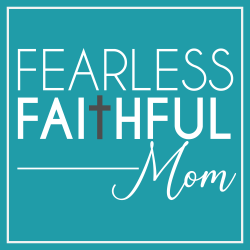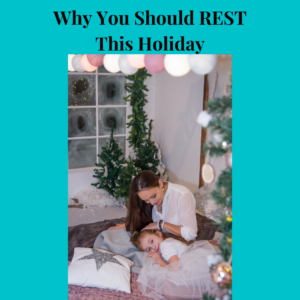Have you ever had a doctor look at you with a confused look and say, “hmmm…that’s weird”? I’ve had it happen more times than I can remember, and I’m pretty sure it’s going to keep happening! Let me go back a step. I am one of the 51 million American adults who has a chronic illness. Actually, that’s not entirely accurate. I have a whole Brady-Bunch-family-reunion of chronic illnesses roaming around my body. That means that between friends, family, doctors, and nurses I have heard both incredible words of support and encouragement and insanely insensitive things that were theoretically *meant* to be encouraging. So, as your friendly neighborhood chronic illness mentor I’m going to walk you through how you can be an amazing support for your friends and family who are living this life!

Use Healing Words
Did you know that we are instructed to be careful about what we say at least 100 times throughout the Bible? Proverbs 12:18 says, “Some people make cutting remarks, but the words of the wise bring healing (NIV).” That makes it pretty clear that our words are powerful! The problem is that if you’re not living with a chronic illness you can’t always tell the difference between “cutting remarks” and wise words that heal.
Show You Care
You are a kind and compassionate person. I know that because if you weren’t, you wouldn’t even be reading this to learn how to better support your friends and family! That’s how I also know you would never intentionally make a cutting remark about your friend’s health. But sometimes they slip out by accident. Comments like, “you just need to push through” and, “have you tried ___” (insert well-intended advice) can cut deeply, even if you mean well.
Who Are You Helping
It can be uncomfortable to be around someone who is sick or in pain, especially when it won’t get better. Sometimes when we say the wrong thing we are speaking out of that discomfort. Like when we try to change the subject or disengage when our friends are talking about their struggles. When we find ourselves in that position it can help to pause and think about whether our words are meant to comfort our friends, or to make ourselves feel more at ease.
Give Honest Encouragement
I remember many years ago I was at a Celiac Disease support group. A woman who was new to being gluten free was having a hard time coping and shared that with the group. Another member responded in the absolute worst way possible. She told her that she was lucky that it was ‘just Celiac Disease’ because at least she didn’t have cancer. I’m pretty sure that woman *thought* she was being supportive and encouraging. After all, in her mind she probably saw it as giving the other woman a bit of perspective. But, in that moment, what she said was the furthest thing from being supportive. What the new member needed to hear was that it’s a hard adjustment, but eventually it wouldn’t feel so overwhelming.
Allow for Struggles
Our instinct as humans is often to try to ‘cheer someone up’, but that’s not always the right call when it comes to giving someone hope. When life feels anything but cheery it can seem like a lie to say that everything is ok. So instead of telling our friends to ‘think positive’ we can say something like, “You don’t have to be strong all the time. It’s okay to struggle.”
Allow for Lament Over the Illness
Christians seem to think that being anything other than 100% positive and ‘grateful’ is somehow wrong or sinful. I can assure you that is not biblical. Over half of King David’s psalms involve lament and he was certainly not the only person in the Bible to cry out to God in despair. One of my favorite verses is 1 Samuel 1:10, “Hannah was in deep anguish and crying bitterly as she prayed to the Lord (NLT).” Hannah wasn’t cheery and didn’t pretend to be and yet God had mercy on her. As Christians we have to remember that grieving is normal and healthy, and it isn’t just reserved for death.
Speak Hope About Life with Illne
“You need to pray for God to heal you” is probably one of the most frustrating things that people say. Don’t get me wrong, I believe in the power of prayer. I have seen it work miracles on many occasions. But I promise you from the bottom of my chronically-ill heart, our friends are NOT going to take that how we mean it when we tell them to pray. I can almost guarantee that they have prayed for healing more often than anyone can imagine. They don’t need to feel pressure to be a ‘better Christian’ and like it or not, telling them they should pray harder or read their Bible more will make them feel that way. So how can we speak hope into their lives?
They Aren’t Alone
Being sick and in pain can feel so incredibly lonely and isolating. One of the most important things we can do is remind our friends that they don’t have to bear this burden on their own. Try telling them that even on their worst days they aren’t alone because you’ll be there to listen. If it’s been a bit since you’ve heard from them, try sending a text or giving a call to check in.
God Loves Them
After a while, living with a chronic illness can fool you into thinking that God doesn’t care about you anymore. It becomes easy to believe that God has abandoned you, or is even outright punishing you. Yes, those are lies from Satan. Unfortunately they are painfully easy to believe when your life is filled with suffering. Try speaking hope into your friend’s life by saying something like, “God sees you and He loves you. He hasn’t forgotten you in this.”
Show God’s Love to Your Friends with Chronic Illnesses
Proverbs 18:21 tells us, “The tongue can bring death or life…”. You have the ability and the opportunity to speak hope and compassion into the lives of people dealing with health struggles. You can be the person who helps them to feel seen and understood with the power of your words. Take the opportunity God has given you to be a blessing to your friends. Use your words to build them up and show God’s love to your friends with chronic illnesses. Stay tuned for part 2 of this series about helping your friends with chronic illness and if you’re dealing with a chronic illness yourself, check out this post!




Pingback: Chronic Illness Part 2: How to Show Up with Friendship - Fearless Faithful Mom